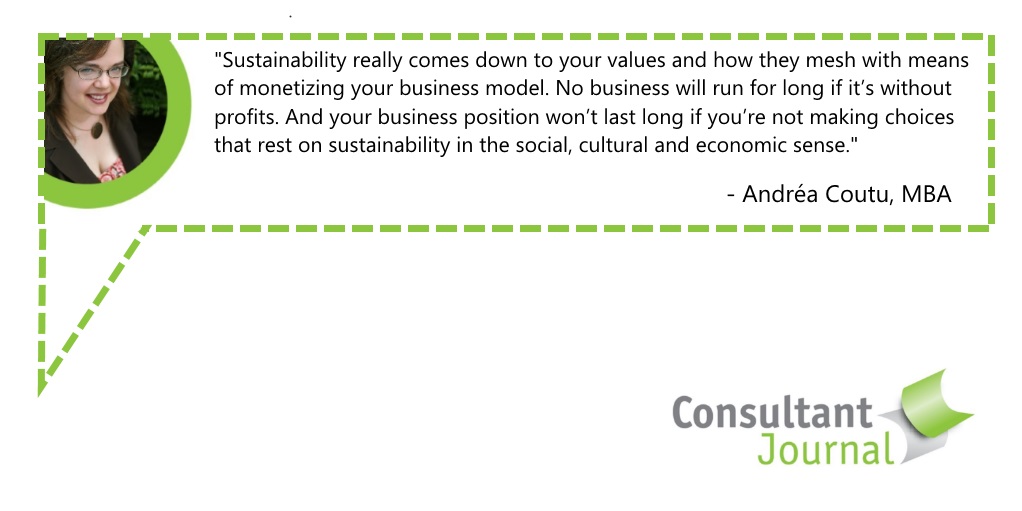 Sustainable business – the phrase might make you think of green companies, but there’s something to be said for businesses that will be around for the long haul.
Sustainable business – the phrase might make you think of green companies, but there’s something to be said for businesses that will be around for the long haul.
Back in the 90s, I was brought in to consult on a variety of businesses. It was the dot-com era and experienced CEOs were approaching me with inane business plans. I’d ask about the monetization strategy and they’d come back, telling me that convergence, consolidation and critical mass would create virtuous circles. And I’d say, “Nice buzz words. Where’s the business model?”, albeit with softer words. This was my first experience with sustainable business models.
Later, I worked with a company that pointed out the giant amount by which their revenue had grown the previous year. They asked me to double that growth. I took a look at the books and discovered they had never invoiced for any of it. They’d actually given away this vast sum. It was shocking. When I approached the company with a plan for how they could recoup this lost money and ensure cash flow for the year ahead, the CEO angrily informed me that I was there to do marketing, not accounting. Eventually, I got him on board and saved them well over a million dollars. That’s because I believe business continuity comes from looking outside your own silo to how the whole business works.
How you build and design your business comes from looking at what will be sustainable. And sustainability means more than looking at green choices. Sure, you might choose recycled paper for your business cards, wheat paper for your printer and carbon credits for your business trips – but what are you doing to build your business in a sustainable way?
Sustainability really comes down to your values and how they mesh with means of monetizing your business model. No business will run for long if It’s without profits. And your business position won’t last long if you’re not making choices that rest on sustainability in the social, cultural and economic sense.
Early on in my career, when I was still working as an employee, I was fortunate to have leaders and mentored who believed very much in corporate sustainability. They looked at how to engage and develop employees in their work, careers and lives and sought to do that with us. They asked employees to focus on how to grow the business with a focus on relationships. And my leaders and mentors modelled sustainability through their personal choices, arguing for healthy lunches at business meetings, bringing in fitness and exercise programs at the workplace, cutting work on a Friday to take us to a baseball game as a surprise, supporting employees who were ill and celebrating special moments in the lives of staff, while also inviting spouses and partners to key business events. Those early experiences shaped how I saw business could be.
In my own business, I’ve strived for sustainable choices. Even though it is not uncommon for marketing and media companies to bring on unpaid interns, this clashes with my values around human rights and, of course, setting consulting fees. My business also turns away potential clients when they don’t fit with our skillset, experiences, values or availability – or where we think they could get more bang for their buck elsewhere. These choices make my business stronger and more focused and win respect – while also ensuring that we do good in the world.
How do you build sustainability into business, employment, stakeholder and profit models?
